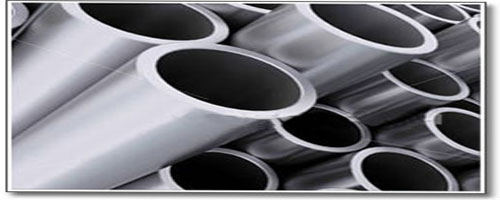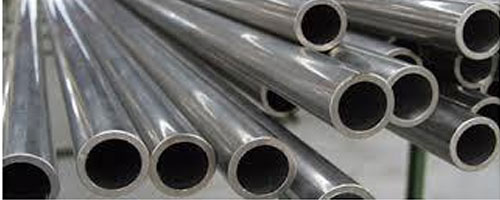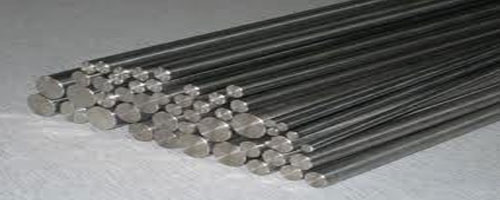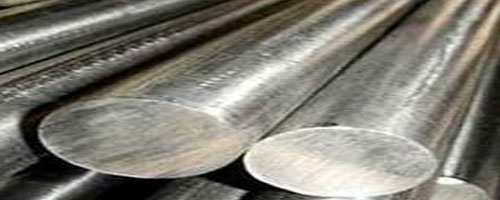
The registered trademark name, Monel, is applied as the prefix name to several corrosion
resistant alloys produced by Special Metals Corporation. These alloys are nickel-based and exhibit traits that
include high resistance to atmospheric corrosion, salt water, and various acid and alkaline solutions.
Alloys of identical chemical and mechanical properties are available from other manufacturers and offer
excellent alternatives to the various Monel® brand alloys. The corrosion-resistant alloy is widely used in the
marine, oil and chemical processing industries:

Monel 400 is a nickel-copper alloy (about 67% Ni – 23% Cu) that is resistant to sea water and steam at high
temperatures as well as to salt and caustic solutions. Alloy 400 is a solid solution alloy that can only be
hardened by cold working. This nickel alloy exhibits characteristics like good corrosion resistance, good
weldability and high strength. A low corrosion rate in rapidly flowing brackish or seawater combined with
excellent resistance to stress-corrosion cracking in most freshwaters, and its resistance to a variety of
corrosive conditions led to its wide use in marine applications and other non-oxidizing chloride solutions.
This nickel alloy is particularly resistant to hydrochloric and hydrofluoric acids when they are de-aerated.
As would be expected from its high copper content, alloy 400 is rapidly attacked by nitric acid and ammonia
systems.
Monel 400 has great mechanical properties at subzero temperatures, can be used in temperatures
up to 1000° F, and its melting point is 2370-2460° F. However, alloy 400 is low in strength in the annealed
condition so, a variety of tempers may be used to increase the strength.

Monel K500 is a precipitation-hardenable nickel-copper alloy that combines the excellent corrosion
resistance characteristic of Monel 400 with the added advantage of greater strength and hardness. These
amplified properties, strength and hardness, are obtained by adding aluminum and titanium to the
nickel-copper base and by a thermal processing used to effect precipitation, typically called age hardening
or aging. When in the age-hardened condition, Monel K-500 has a greater tendency toward stress-corrosion
cracking in some environments than Monel 400. Alloy K-500 has approximately three times the yield strength
and double the tensile strength when compared with alloy 400. Plus, it can be further strengthened by cold
working prior to precipitation hardening. The strength of this nickel steel alloy is maintained to 1200° F
but stays ductile and tough down to temperatures of 400° F. Its melting range is 2400-2460° F.
This
nickel alloy is spark resistant and non-magnetic to -200° F. However, it is possible to develop a magnetic
layer on the surface of the material during processing. Aluminum and copper may be selectively oxidized
during heating, leaving a magnetic nickel rich film on the outside. Pickling or Monel K-500 Barsbright
dipping in acid can remove this magnetic film and restore the non-magnetic properties

Monel R405 is the free machining version of Monel 400. It is a nickel-copper alloy with a controlled amount
of sulfur added to provide sulfide inclusions that act as chip breakers during machining. Like Monel 400,
alloy R-405 is resistant to sea water and steam at high temperatures as well as to salt and caustic
solutions. Monel R405 is a solid solution alloy that can only be hardened by cold working. This nickel alloy
exhibits characteristics like good corrosion-resistance, good weldability and high strength. A low corrosion
rate in rapidly flowing brackish or seawater combined with excellent resistance to stress corrosion cracking
in most freshwaters, and its resistance to a variety of corrosive conditions led to its wide use in marine
applications and other non-oxidizing chloride solutions. This nickel steel alloy is particularly resistant
to hydrochloric and hydrofluoric acidswhenthey are de-aerated. As would be expected from its high copper
content, alloy R-405 is rapidly attacked by nitric acid and ammonia systems.
As with alloy 400, Monel
R-405 is virtually immune to chloride ion stress corrosion cracking in typical environments. Generally, its
corrosion resistance is very good in reducing environments, but poor in oxidizing conditions. It is not
useful in oxidizing acids, such as nitric acid and nitrous. Nevertheless, it is resistant to most alkalis,
salts, waters, food products, organic substances and atmospheric conditions at normal and elevated
temperatures.
Monel 400 and R-405 offer about the same corrosion resistance as nickel but with higher
maximum working pressures and temperatures and at a lower cost due to its superior ability to be machined.